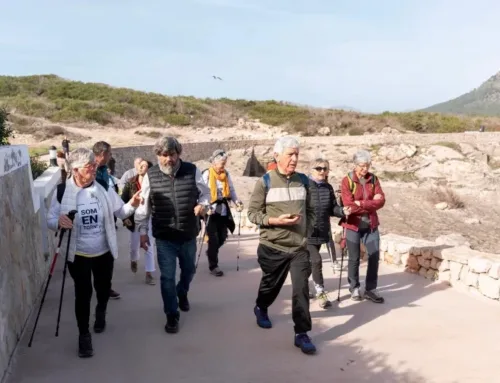V.S.
 After COVID, trips to exotic destinations have been reactivated: “We are at a time when leisure travel is gaining momentum and coexists with travel for work and humanitarian reasons. But the main reason continues to be VFR (Visiting friends and relatives); those who travel to their countries of origin to visit family and friends,” say the Foreign Health Service. In addition to buying tickets and booking accommodation, in these cases it is necessary to pay a visit to the International Vaccination Centre (in Palma de Mallorca, located in the Moll Vell), as “health also travels,” the Ministry of Health reminds us.
After COVID, trips to exotic destinations have been reactivated: “We are at a time when leisure travel is gaining momentum and coexists with travel for work and humanitarian reasons. But the main reason continues to be VFR (Visiting friends and relatives); those who travel to their countries of origin to visit family and friends,” say the Foreign Health Service. In addition to buying tickets and booking accommodation, in these cases it is necessary to pay a visit to the International Vaccination Centre (in Palma de Mallorca, located in the Moll Vell), as “health also travels,” the Ministry of Health reminds us.
Yellow fever, dengue fever, malaria, chikungunya, and zika are some of the main diseases to which travellers may be exposed in some exotic destinations. Some of them can be prevented by vaccination, while for others, such as malaria, zika, and chikungunya, there are no vaccines available, so they must be prevented by other means, such as the use of barrier measures like mosquito nets, coils, or spray repellents, according to a report written by the Spanish Government’s Department of Health and Social Policy.
Among the most popular destinations for Mallorcans who go to the International Vaccination Centre are Kenya, Tanzania, and, in Southeast Asia, India, Vietnam, Cambodia, and Thailand, countries for which it is advisable to purchase extensive medical and comprehensive travel insurance.
How to prevent traveller’s diarrhoea
Among the most common health problems is traveller’s diarrhoea, which can affect up to 80% of visitors to declared high-risk destinations and often affects more people from countries where standards of hygiene are high.
Tips on how to avoid it:
– Do not eat ice or ice cream without the guarantee that it has been made with safe water.
– Avoid foods containing raw or undercooked eggs.
– Do not brush your teeth with unsafe water.
– Boil unpasteurised milk before drinking it.
– Always wash your hands with soap and water before handling and consuming food.
– If the source is unknown, you should boil the water before drinking it or alternatively use a water filter or disinfectant.
– Cold bottled or packaged beverages are generally safe, as long as they are hermetically sealed.
Caution with dips
In addition to monitoring the quality of drinking water, bathing, mainly in fresh water, can pose a health threat, the Ministry of Health warns. In canals, waterways, lakes, etc., larvae can penetrate the skin, while water contaminated with human and animal excrement can cause eye, ear, or intestinal infections. Only swimming pools with chlorinated water are considered perfectly safe.
Bathing in the sea, in theory, does not transmit diseases. However, in some areas, the swimmers should wear appropriate footwear to protect themselves from bites, stings, and dermatitis. It is always recommended to check whether bathing is allowed in the area and whether it poses a potential risk to one’s health.







Leave A Comment